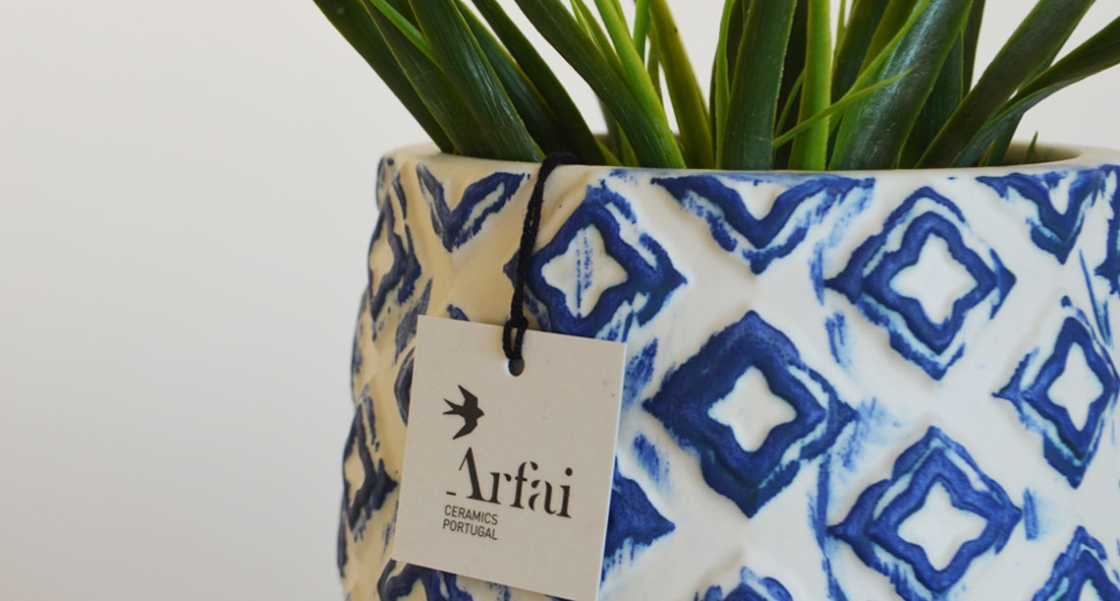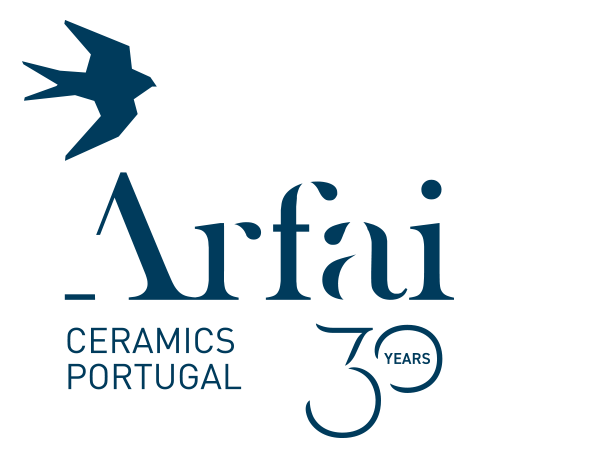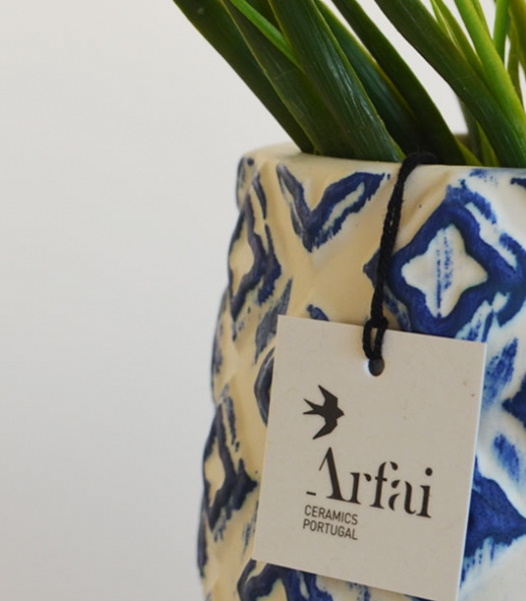
One of the oldest transformed resources in the history of humanity, ceramics is perhaps the most popular material for utilitarian and decorative use worldwide, being produced all over the globe. Either you are a professional buyer or a personal consumer, there are plenty of reasons for you to choose ceramics from Portugal; or at least to acknowledge the added value of the ceramics produced in the land of Camões, of Fado and of Cristiano Ronaldo.
Hand-painted in cobalt blue: appreciating tradition
The Portuguese geological characteristics have made the country rich in this resource, used for centuries both artistically and commercially. It is hard to determine the exact origin of the ceramics artistry in Portugal, but historians and researchers have identified artifacts that, by showing influences from the Arabic invasion period, refer to the birth of the nation.
From the XVIII century on, ceramics industry grew substantially, from north to south of the country, exploring many types of clays: from Ceramic Tiles, popularly hand painted in cobalt blue, to pottery, ornamental earthenware, also hand painted, utilitarian stoneware and, of course, the so noble porcelain.
Playing since then an important role at the social, economic and cultural levels, Portuguese ceramics has used the power of tradition to evolve to modern days, being now one of the top world exporters of ceramics in many sectors.
Highest level of specialization in the World
Recent studies have shown that, among the main exporters of Ceramics worldwide, Portugal has the highest specialization coefficient (1.32%, in 2015), an index that measures the level of specialization of a given country in a given industry.
What’s more is that, when analyzed ceramics and glassware sector in particular, Portugal is the one with the highest revealed comparative advantage index (5.2, in 2014), revealing the advantage of the country in this business (the Index of Revealed Comparative Advantage is used in international trade studies to analyze the level of specialization of a country, find our sources below).
So: what happens when you sum tradition to a high level of specialization? Only good things.
Quality, innovation, and EXPERIMENTATION
For the experts, ceramics made in Portugal are a synonym of high quality. The reason for this rely first on the clay itself and then in the process, where one may find a unique ‘know-how’ that results from many years of experience. With quality in one hand, there is design in the other. Portuguese are gifted with quite proper working modes, see their unique problem-solving approach (aka ‘desenranscanço’), which promotes an open attitude where creative thinking and experimentation are key. What does this have to do with ceramics? It allows the fruition of unique, often beautiful, but always authentic and differentiated ceramics.
Finally, there is the sun, the sea (did you know we are 15 min from the Atlantic coast?), the food, the Pastéis de Nata… If you are a professional buyer – how good is it to make your business travels with all of this? If you are not, just take a bit of Portugal into your home, check the labels and look for “Made in Portugal”.
Sources: APICER, Cerâmica Portuguesa: tradição e inovação, Portugal, 2016; PwC, “Capacitação da indústria da Cerâmica Portuguesa - Um cluster, uma estratégia, mercados prioritários”, Novembro, 2016; Estudo do CEGEA, ainda não publicado.

